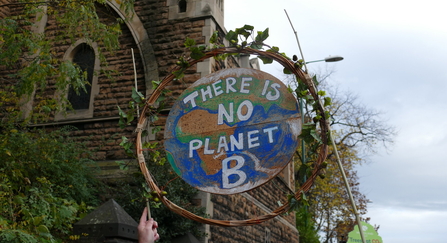What is eco or climate anxiety?
In simple terms eco or climate anxiety is being worried about the environmental or climate doom in a way that stops you from enjoying your daily life.
Although eco-anxiety isn’t recognised as a health condition, it has similar signs with anxiety. Some of them can include lack or difficulty to go to sleep, the worry that any of the things you do lead to global warming, not being able to concentrate on work or the task in hand, feeling helpless or powerless, or even having panic attacks.
Who can it affect and why?
Eco-anxiety can affect anyone. Acknowledging that climate change is real, and that it affects the planet, and our future can trigger it. Sometimes being in the middle of a bad storm or suffering from negative impacts of an extreme weather event (e.g., heatwave, drought, flooding etc.) can trigger or accentuate the feelings of worry about that event happening again.


